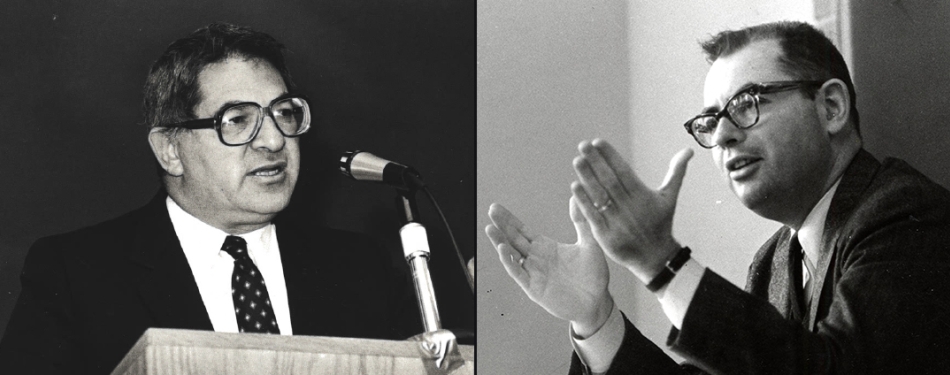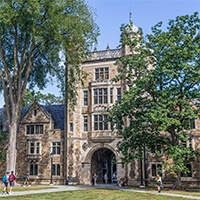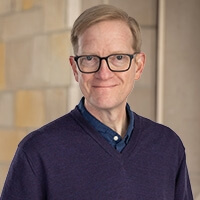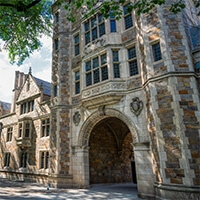Michigan Law recently lost three emeritus faculty members, all of whom were renowned legal scholars and teachers.
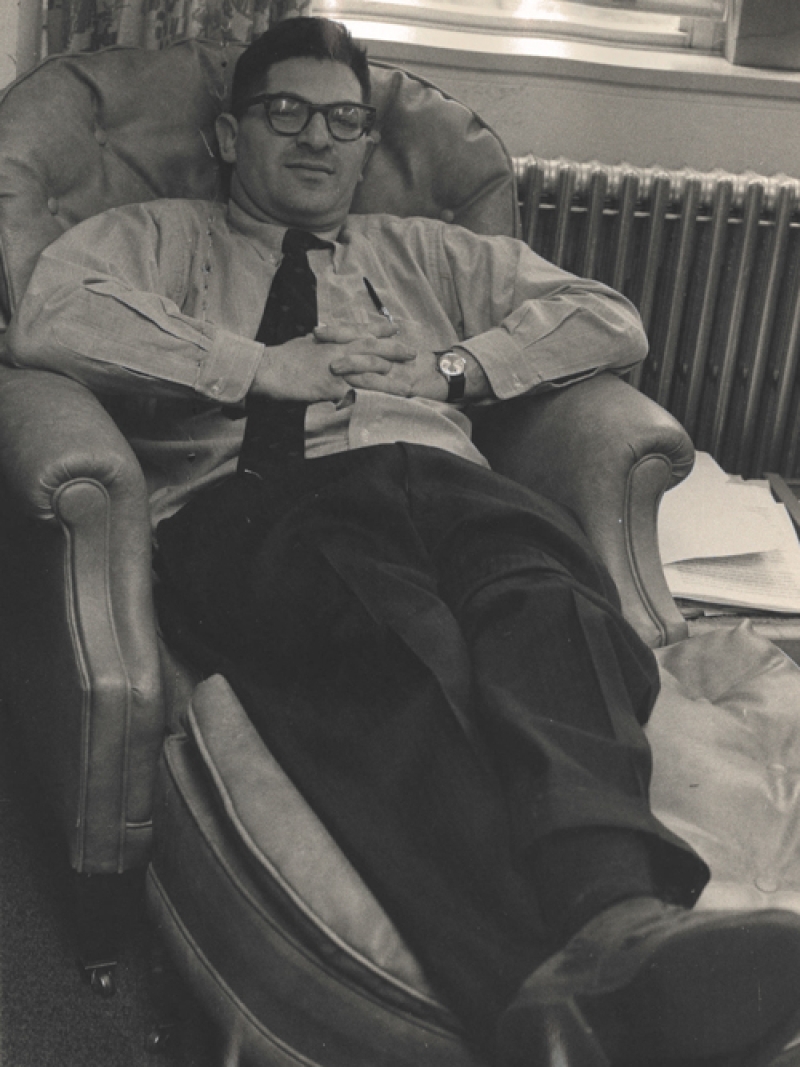
Doug Kahn, the Paul G. Kauper Professor Emeritus of Law, died on October 22, 2021, at his home in Tallahassee, Florida. He was 86.
After attending George Washington University Law School, Kahn worked first at the Department of Justice and then at a small private firm in Washington, D.C., where he practiced tax law. In 1964, he joined the Michigan Law faculty. He retired in 2016 as the longest-serving professor in the Law School’s history.
Considered a giant in the field of tax law, he was a prolific scholar of both books and articles on a wide range of topics in tax. However, his first love was always his students. Although he was a visiting professor at several outstanding law schools throughout his career, the University of Michigan held a special place in his heart. When explaining why he never left despite offers from other schools, he remarked, “I have never had any group of students that I have enjoyed as much as the ones that I’ve had here.”
Kahn inspired generations of students, many of whom became tax experts in their own right. Upon his retirement, Kahn was honored in a special issue of the Michigan Business & Entrepreneurial Law Review, which can be viewed here.
“[Doug] would invest energy, time, and attention into his students. It wasn’t a distant relationship. He really wanted to get to know them, wanted to spend time with them. He took great pleasure from it himself,” said Dennis Ross, ’78, in 2016, when he made the lead gift to establish the Douglas A. Kahn Collegiate Professorship at Michigan Law. “He was always a positive, encouraging person, and not just for me, but for so many of his students.” As for the professorship, “It was the least I could do,” Ross said. “You sort of go through life accruing debts and obligations, and I do not have a greater debt or obligation to anyone than Doug Kahn.”
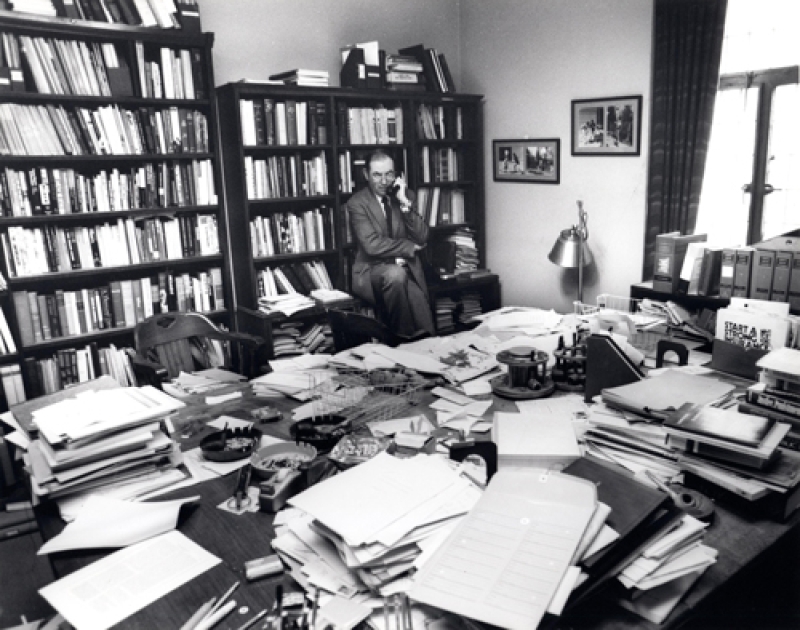
Yale Kamisar, the Clarence Darrow Distinguished University Professor of Law Emeritus and Professor Emeritus of Law, died January 30, 2022, in Ann Arbor at age 92.
Known as “the father of Miranda” because of the influence that his writings had on the landmark Supreme Court case Miranda v. Arizona, Kamisar was a nationally recognized authority on constitutional law and criminal procedure. A graduate of Columbia Law School, he wrote extensively on criminal law, the administration of criminal justice, and the “politics of crime.” He is author of Police Interrogation and Confessions: Essays in Law and Policy and coauthor of Criminal Justice in Our Time, and The Supreme Court: Trends and Developments (five annual volumes). He also coauthored two widely used casebooks: Modern Criminal Procedure: Cases, Comments & Questions, all ten editions, and Constitutional Law: Cases, Comments & Questions, all nine editions. In addition, he wrote numerous articles on police interrogation and confessions; right to counsel; search and seizure; and euthanasia and assisted suicide, and is widely quoted on these subjects. His work has been cited in more than 30 U.S. Supreme Court opinions.
Kamisar taught at the University of Minnesota Law School from 1957 to 1964 and joined the Michigan Law faculty in 1965.
“When I first met Yale Kamisar I was very nervous. After all, I was just a first-year criminal law student and he was ‘the father of Miranda,’” recalled Eve Brensike Primus, ’01, in a 2004 Michigan Law Review article celebrating his retirement. Today, she is the Yale Kamisar Collegiate Professor of Law at Michigan. “My first interaction with him did not exactly assuage my anxiety. One minute I was introducing myself, and the next minute I was backed into a corner, and he was standing five inches in front of me yelling about the Supreme Court’s latest criminal procedure decision. Like most students, I was intimidated by his gruff demeanor, lack of respect for personal space, and apparent need to shout about everything. In time, however, I learned that he yells, not to intimidate or control, but because he is so excited and passionate about the law that he is incapable of expressing himself in any other way. As for his gruff and intimidating demeanor, it didn’t take me long to figure out that it was all a facade. Yale Kamisar is one of the kindest, humblest, and most generous individuals I know.”
She continued, “Thousands of indigent defendants have benefited from his teachings. Judges and prosecutors nationwide think twice about a defendant’s Fourth, Fifth, and Sixth Amendment rights because of Yale Kamisar’s lectures and writings. I still hear his voice in the back of my head when I argue a suppression motion or attack the constitutionality of a criminal statute. Never has a teacher pushed me so hard or taught me so much.”
Read “The Warrior Scholar,” a Michigan Heritage Project story about Kamisar here. Read Kamisar’s obituary in the New York Times here.
In addition, the Law School recently lost former Dean Terrance Sandalow, who died on January 29, 2022, in Ann Arbor at the age of 87. Sandalow joined the Michigan Law faculty in 1966 and served as dean of the Law School from 1978 to 1987. He then served as the Edson R. Sunderland Professor of Law until his retirement in 2000. During his tenure as dean, the Smith Library addition—revolutionary because it was underground—was built. His tenure also saw the expansion of the Law School’s global footprint, with the establishment of the Michigan Journal of International Law in 1979 and the launching of the Bates Overseas Fellowship program in 1982.

